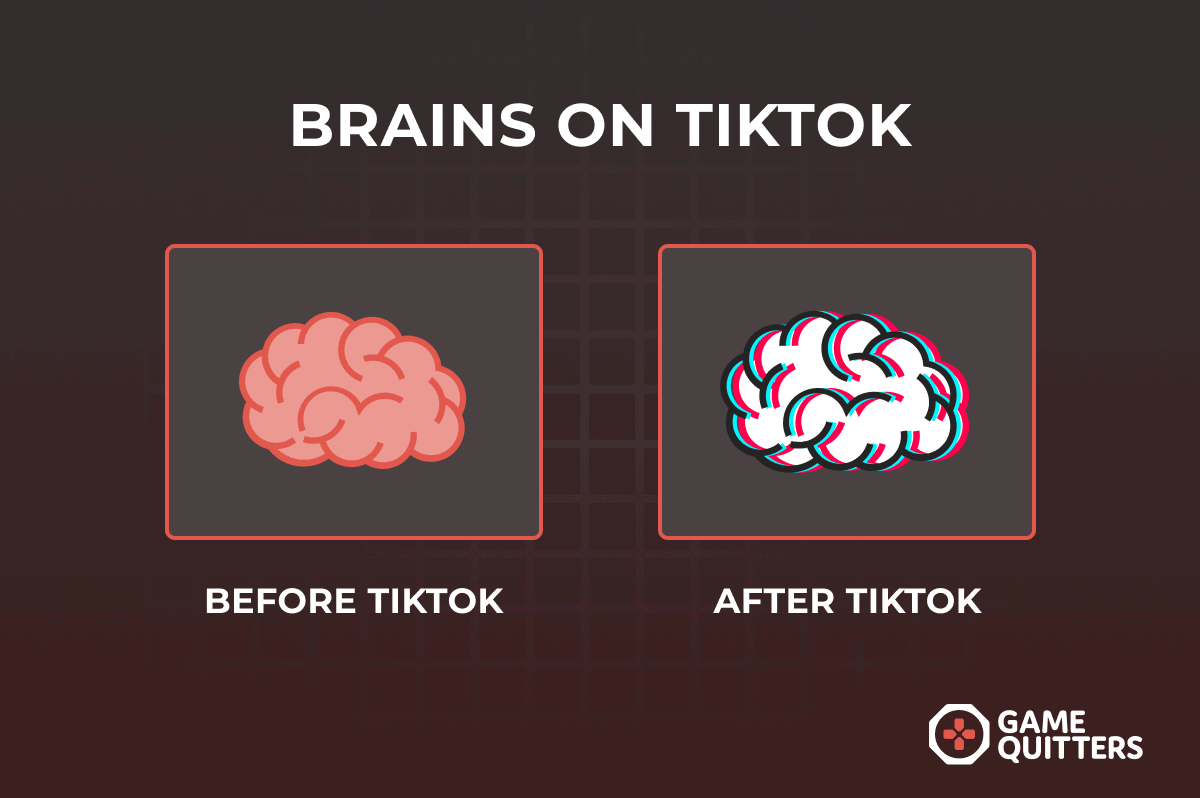The TikTok Effect: How Social Media Influences ADHD Perceptions

Table of Contents
TikTok's Role in Amplifying ADHD Awareness
TikTok's unique platform offers a powerful avenue for raising ADHD awareness. Its accessibility and short-form video format have democratized information sharing, enabling individuals with ADHD to share their lived experiences and challenge long-held stereotypes.
Positive Representations and Increased Visibility
TikTok has become a space where individuals with ADHD can connect, share their stories, and build community. This increased visibility is crucial for normalizing ADHD symptoms and experiences. Successful ADHD awareness campaigns and creators leverage the platform's reach to educate and empower.
- Increased normalization of ADHD symptoms: Seeing relatable experiences shared openly helps reduce the stigma surrounding ADHD.
- Improved understanding of ADHD challenges and strengths: Videos showcasing both the difficulties and unique strengths associated with ADHD provide a more nuanced understanding.
- Community building and support: TikTok fosters a sense of belonging and support among individuals with ADHD and their families. Hashtags like #ADHD and #ADHDTok facilitate connection and shared experiences.
The Power of Relatable Content
The short, easily digestible nature of TikTok videos makes complex topics more accessible. Relatable content, often infused with humor, effectively breaks down barriers and fosters empathy.
- Humor and relatability break down barriers: Using humor to discuss challenging aspects of ADHD helps destigmatize the condition and encourages open conversations.
- Personal stories humanize the condition: Sharing personal experiences makes ADHD less abstract and more understandable for those without the condition.
- Increased empathy and understanding: By showcasing the human side of ADHD, TikTok helps viewers develop empathy and a more informed perspective.
The Perils of Misinformation and Medical Advice on TikTok
While TikTok offers positive aspects, it also presents significant challenges. The platform's open nature allows for the spread of misinformation, particularly regarding ADHD diagnosis and treatment.
The Spread of Inaccurate Information
The ease of content creation on TikTok also means that unqualified individuals can readily share potentially harmful medical advice. This poses a significant risk, especially for those seeking information about ADHD.
- Misleading "ADHD cures" or treatments: The platform can host misleading information about unproven or ineffective treatments for ADHD.
- Reinforcement of harmful stereotypes: Inaccurate portrayals of ADHD can perpetuate harmful stereotypes and misconceptions.
- Potential for delayed or inadequate professional help: Relying on unreliable online information can delay or prevent individuals from seeking appropriate professional help.
The Influence of Trends and Challenges
Viral trends related to ADHD, while sometimes entertaining, can also contribute to the trivialization or misrepresentation of the condition.
- Oversimplification of complex symptoms: Trends often focus on superficial aspects of ADHD, overlooking the complexity of the condition.
- Focus on superficial aspects of ADHD: The emphasis on easily digestible content can lead to an oversimplification and misrepresentation of the condition's complexities.
- Lack of nuance and critical thinking: The fast-paced nature of the platform can discourage in-depth critical thinking about the information presented.
The Impact on Diagnosis and Treatment Seeking
The increased visibility of ADHD on TikTok has a tangible impact on diagnosis and treatment-seeking behaviors.
Increased Awareness Leading to More Diagnoses
The platform's role in raising awareness may contribute to an increase in the number of individuals seeking professional diagnosis. However, access to accurate diagnosis and appropriate care remains a significant challenge.
- More individuals seeking professional help: Increased awareness may encourage individuals to seek help for symptoms they previously didn't understand.
- Early intervention and improved outcomes: Early diagnosis allows for early intervention, leading to better long-term outcomes.
- Potential for increased strain on mental health services: A surge in demand for diagnosis and treatment may strain already limited mental health resources.
The Effect of Misinformation on Treatment Decisions
Misinformation on TikTok can significantly impact treatment choices and adherence. This underscores the crucial need for individuals to seek professional medical advice.
- Self-medication based on inaccurate information: Individuals may attempt self-medication based on unreliable information found online.
- Delayed or inappropriate treatment: Misinformation can lead to delays in seeking appropriate treatment or the selection of inappropriate treatments.
- Negative impact on mental health outcomes: Incorrect treatment based on misinformation can negatively affect mental health outcomes.
Conclusion
The TikTok Effect on ADHD Perceptions is a complex issue with both positive and negative aspects. While TikTok has undeniably increased awareness and fostered community, the platform's vulnerability to misinformation poses significant risks. A balanced approach is crucial: embrace the positive aspects of increased visibility and community building, but always prioritize verified information and professional consultation. Understanding The TikTok Effect on ADHD Perceptions requires critical evaluation of online sources and a commitment to seeking professional help for accurate diagnosis and treatment. Don't rely solely on social media for health information; consult with qualified healthcare professionals for guidance regarding ADHD and its management.

Featured Posts
-
 Capital Summertime Ball 2025 A Guide To Ticket Acquisition
Apr 29, 2025
Capital Summertime Ball 2025 A Guide To Ticket Acquisition
Apr 29, 2025 -
 A Geopolitical Analysis Russias Military And Europes Concerns
Apr 29, 2025
A Geopolitical Analysis Russias Military And Europes Concerns
Apr 29, 2025 -
 How To Purchase Capital Summertime Ball 2025 Tickets A Comprehensive Guide
Apr 29, 2025
How To Purchase Capital Summertime Ball 2025 Tickets A Comprehensive Guide
Apr 29, 2025 -
 Ambanis Reliance Q Quarter Number Results Positive Implications For Indian Large Caps
Apr 29, 2025
Ambanis Reliance Q Quarter Number Results Positive Implications For Indian Large Caps
Apr 29, 2025 -
 Geary County Inmate Bookings April 24th 28th Photos And Details
Apr 29, 2025
Geary County Inmate Bookings April 24th 28th Photos And Details
Apr 29, 2025
